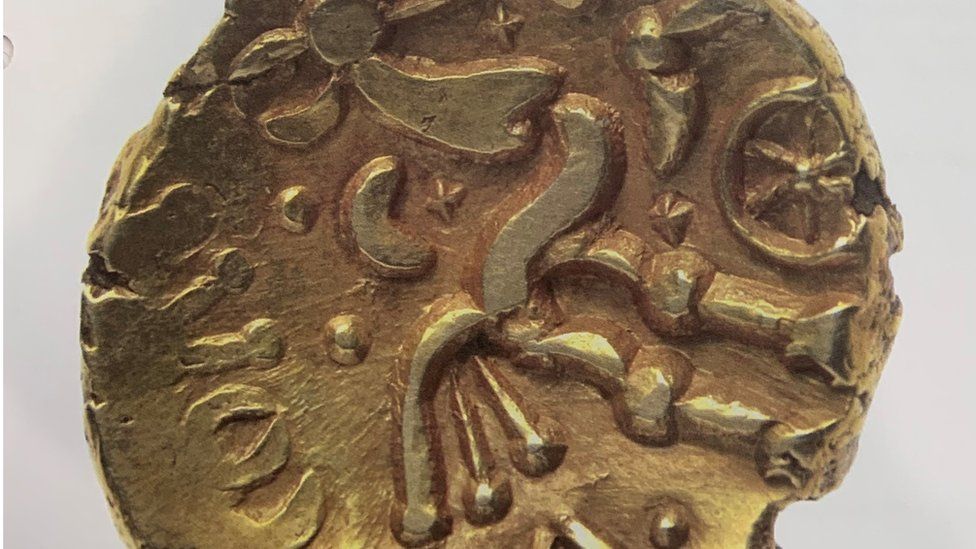Individual finds of Iron Age coins were declared treasure after 27 years
Categories: Nálezy nejenom s detektorem ve Velké Británii a Irsku
The 2,000-year-old coins were gradually found by a single detectorist between 1993 and 1995 in the Dursley area of Gloucestershire. Experts have dated them to between 50 BC and AD 10. They are associated with a tribe known as the Dobunni, the coroner, who has now declared the coins treasure, said in a report.
The set contained 16 silver and one gold coin. Using a metal detector, they were discovered over time by local resident Michael Jones, who recently handed them over to Bristol Museum. The silver coins are of the 'Cotswolds Eagle' type (50 to 20 BC), the single gold coin is a tripod with the inscription 'Corio' and dates from between 20 BC and 10 AD.
"It was only after the finder recently went through his collection of earlier finds that he realized these coins might be a ploughed depot. In fact, at least two of the coins were struck in the same workshop and time period," said deputy coroner Roland Wooderson of Gloucestershire. "Given the time when the finds were made, they do not fall under the Treasure Act 1996, but the older Treasure Trove Act," he added.
"These coins were made in what are now the counties of Gloucestershire, Avon and west Oxfordshire and parts of Herefordshire, Worcestershire, Warwickshire, Berkshire, Wiltshire and Somerset," said Kurt Adams, liaison officer for Gloucestershire and Avon, who took delivery of the coins.
British Museum treasure registrar Dr Denise Wilding added that the coins "qualify as treasure in terms of their age and precious metal content.' Experts assume they were deliberately deposited by the owner with the intention of retrieving them later.
The Stroud Museum has expressed interest in acquiring the treasure.
Roman Nemec
Sources: bbc.com

The golden statue

The coins have been linked to the Dobunni tribe
The article is included in categories: